The importance of mentoring to retain and empower young people in agriculture, and in turn generate effective advocacy, was at the heart of a rallying cry to the ag sector by Julie McDonald, chief financial officer of one of Australia’s largest family-owned cattle companies, MDH Pty Ltd, at the Rural Press Club of Queensland Ekka breakfast on Friday.
Through numerous board and mentoring positions Julie is at the forefront of industry efforts to inspire the next generation of talented young people to pursue careers in food and fibre production.
“Well mentored people in our industry naturally become good advocates, so it makes sense that when we contribute to both, we are recognising the importance of mentoring and the flow on effect of that is good advocacy,” she said.
“And in course we have a thriving and sustainable industry with capable people at its core.”
The McDonald family’s own connection with agriculture in Australia started in 1827 when Don McDonald sailed from Inverness in Scotland as head stockman aboard the Caroline, docking at Stanley on the northwestern tip of Tasmania.
He moved to North Queensland where generations of McDonald family entrepreneurs, both men and women, would follow. Today MDH is one of Australia’s largest cattle operations, spanning 14 properties, 3.36 million hectares and running 150,000 head of cattle.
That adds up to nearly 200 years of “doing, learning, teaching, mentoring, celebrating, and advocating for ag” which continues today.
 “Multiply this across our agricultural landscape as generations of other farming families are doing the same thing, they’re taking on knowledge and wisdom, mentoring without giving it that name.”
“Multiply this across our agricultural landscape as generations of other farming families are doing the same thing, they’re taking on knowledge and wisdom, mentoring without giving it that name.”
Julie joined the McDonald family when she married Zanda McDonald 25 years ago, moving to a 1000-square-mile station on the western coast of Cape York Peninsula, “quite a contrast” to the 52ha farm on which she was raised in central western NSW. Of her new home she noted: “I was captivated by the country, the cattle, the coastline, and cautious of the crocodiles.”
She was taken by the resourcefulness and generosity of the people she met and their willingness to help – humourously recalling one truck driver to whom she said she was particularly grateful after he watched her reverse into the side of a shed, “then helped me fix the damage to both the car and the shed and then never said a word about it”.
Julie also paid tribute to the role the ICPA plays in educating rural children, including her and Zanda’s own four daughters. “Without the ICPA many families would simply not be able to stay at home for these school years. Every bush family is the beneficiary of their advocacy.”
Fork in the road
About 10 years ago Julie found herself facing a significant fork in the road following the tragic loss of Zanda’s life in an on-farm accident.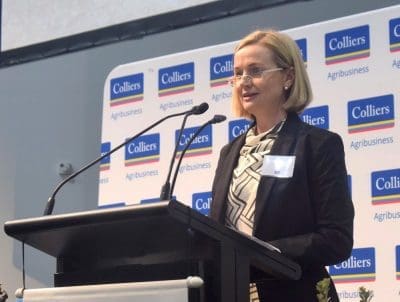
“I had decisions to make, the most pressing at the time was whether to stay and continue to live in the bush and work in agriculture or to leave with our daughters and build my career and life elsewhere.
“Without doubt my decision to stay was due to people around me.”
“In the first instance it was family who gave me the support I need find my feet.
“And then adding to this it was the offers of help and guidance from many others in our sector and this was followed by the gift of time and wisdom, allowing me to build on my foundations and better contribute to our business where I had sought to add value.
“The decision to take people up on the offer of help is also key.
“But if didn’t have access to the willing and wise, the outcome could have been very different.
“It was but for these mentors that I didn’t leave.”
Retaining talent as important as attracting it
At last year’s Rural Press Club of Queensland’s Ekka Breakfast Anthony Lee from Australian Country Choice lit a fire with the agricultural education issue by drawing attention to the limited exposure school-age children have to lessons in agriculture. As we reported last week, he has since brought together industry leaders and Government representatives to develop a national agricultural education working group with funding support to create a national food and fibre education plan.
Giving the Malcolm McCosker Memorial Address at this year’s Rural Press Club of Queensland’s Ekka Breakfast, Mrs McDonald brought another perspective to the agricultural education issue by focusing on what can be done to inspire young people already in the sector to stay and pursue long-term careers in agriculture.
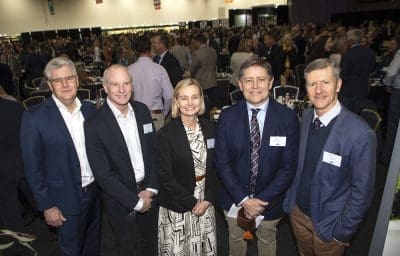
From left to right Cameron McMillan and John Corbett from QRIDA, Julie McDonald, MDH Pty Ltd, Rural Press Club of Queensland president James Nason, Beef Central and Brendan Egan from QRIDA.
“Equally as pressing as getting kids into agriculture is retaining them, and feeding their curiosity,” she said.
“It is when they are at their fork in the road we have an opportunity to turn their gap year into their career.
“Every person who walks away from the sector takes with them their training, their knowledge and their curiosity.
“But every person who stays connected to the industry builds on their foundations and contributes.”
In 2022 there were six jobs for every single agricultural graduate, she said.
“That represents a lot of opportunity.
“The sustainability of our industry depends firstly on the people it attracts, and then how they are developed.
“And most often this is a function of the relationships and networks, that was certainly the case for me.”
Understanding mentoring
The origins of mentoring she pointed out go back to Ancient Greece in the 12th century BC when Odysseus set off for the Trojan War and entrusted the responsibility for developing his son’s character to a wise old friend called Mentor.
“The intention was for his son’s character to be developed, not for Mentor to give him an education, (but) to let his son make his own mistakes and be guided.
“The term mentor points less to knowledge and more to wisdom.”
She pointed to the experience of respected farm business advisor Mike Stephens, who has helped to create a range of mentoring programs across agriculture.
He has explained that the best mentors in his life never told him anything, “they just asked questions”.
Similarly, prominent agribusiness leader Richard Rains who chaired the Zanda McDonald award for seven years has explained that it is not only the mentees that benefit but the mentors as well: “In his experience success depends on the relationship and the level of trust built over time, and when both are in place the benefits to both are significant.”
The impact of having a good mentor in your family and your workplace could not be overstated, she said, but it was also important for young employees and family members to be mentored by other people outside the property or the business.
The ‘HR Dept” of Ag
Fortunately the sector already has a large and thriving network of mentorship programs in place (including those highlighted in the slide below).
These programs are akin to “the HR (Human Resources) Department” of the broader agricultural sector, she said.
“Big business invests heavily in HR that provides pathways for the development of employees and in the process identifying their future leaders and investing back in them.
“It makes sense to combine to give our young people equivalent experience, access to programs that will expose them to other ways of thinking and wisdom that may otherwise not be accessible, and access to programs that feed their curiosity and improve their performance.”
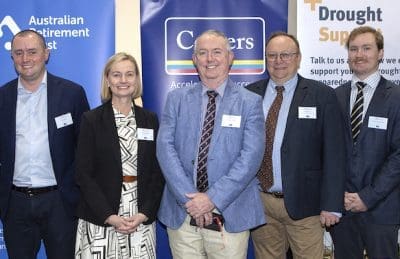
Julie McDonald with Collier’s Australia representatives James Beer, Rawdon Briggs, Phillip Kelly and Nicholas Warmington.
She also offered numerousf examples of young industry achievers who have benefited directly from existing industry mentoring programs including Kari Moffatt, co-founder of the Young Livestock Exporters Network; Shannon Landmark, co-founder of Black Box Co and Kate Power, Livestock Operations & Development Manager at Kilcoy Global Foods.
“The people that go through these programs have their learnings and their experiences at their workplaces and the benefits then flow to the business and through industries.
“It is not just a feel-good initiative, it is a strategic investment in the future of our industry, in our own HR department,” Julie said.
“But these programs are only as good as the value placed on them by industry and the people who contribute.
“Don’t underestimate the impact that you can have and I encourage you to get involved.”
‘Celebrate to Advocate’
Among the clear returns on investment that flow from mentoring she said was more effective advocacy.
Advocacy can mean different things to different people, but one thing most would agree on is that “the purpose of advocacy is to achieve change for the better”.
A recent report on the State of Australian Advocacy completed by the Australian Farm Institute and commissioned by the NFF stated that advocacy needs to be “relevant, effective and thriving” and that people in agriculture need to be influencing both public opinion and policy and “it must come from the ground up”.
It also suggested that “we can do better”, she said.
The health and strength of structured organisations which advocate for industry at national or state level, such as Cattle Australia, the Red Meat Advisory Council and National Farmers Federation, had a direct impact on all agricultural businesses and it was up to individuals to consider where they could add value to those bodies.
Nor should people underestimate the impact they could have as individuals.
“By learning a few key facts and a bit of science we can celebrate to advocate,” she said,
“There are many opportunities to throw in a few facts and figures about the good things we do in agriculture.
“It might be a fund-raising barbecue at your local community, or a P&F meeting, or a parent teacher interview, or maybe a relative that is not well informed.
“Well-timed conversations that are science based, rather than fuelled by emotion, can change the way that some people perceive agriculture.
“And when multiplied these conversations have a significant impact.
“If everyone in this room said to someone outside agriculture one factual positive comment every day for the next 12 months that is about 280,000 positive messages.”
Need to speak up
People living and working in Australian agriculture were experts in the field, and when looked to for information needed to speak up.
“When we hear some of the misinformation that gets bandied around, we need to reply with facts.”
Australia produced just 3 percent of the world’s beef, yet is the fourth largest exporter of beef and the third largest exporter of live cattle in the world.
“Our markets and our relationships with our trading partners are critical and it is important that our contribution to solving global food security and the climate challenge is recognised and celebrated,” she said.
The red meat advocate’s handbook
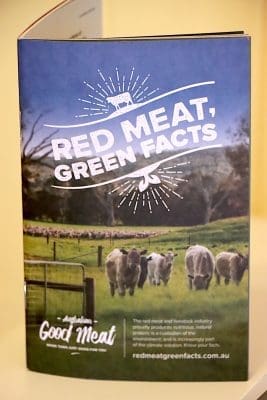
For more info on MLA’s Red Meat, Green Facts booklet click here
She also directed people towards the MLA’s Red Meat, Green Facts booklet to use as the “red meat advocate’s handbook”.
“It is something we all should have in our back pocket,” she said.
Some of the many points contained within the booklet she drew attention included that a single animal produces over 1500 portions of cooked beef, and woody vegetation has increased in Australia since 1995.
She also emphasised the importance of people advocating in a coordinated way.
One-man-band vs harmony of an orchestra
One issue highlighted by the State of Advocacy Report was that there are almost 270 organisations that identify as advocacy groups in Australian agriculture.
While these are all populated by passionate and dedicated people who are giving their time often on a voluntary basis, it also created potential competition for resources and for attention and confused messaging.
“The analogy of the well intentioned one-man-band does indeed draw attention, but it can be hard to know what to listen to, where to look, and it can sound confused.
“Compare this to the harmony of the orchestra creating a whole that is greater than the sum of its parts.
“Advocacy is the same. Coordinated messages are easier to understand, and necessary for success.
“Our messaging can be coordinated, informed, and sustained, and this gives us the best chance of being effective at an organisational level, and as individuals.”
Start by asking ‘why do you think that?’
To achieve good outcomes it was also important to think about how conversations were framed.
“How many successful conversations have you had that started with: ‘You’re wrong’ or ‘you’re an idiot?’
“We are best to try to understand who our audience is and what motivates them, opening with perhaps ‘Why do you think that?’ might give you a better chance of success.”
She urged people across agriculture to become actively involved in mentoring programs, to speak to people outside of agriculture and to use the many tools at their disposal such as online resources and MLA’s Red Meat Green Facts booklet.
“Put them in your car, in your kitchen, give them to your friends,” she said.
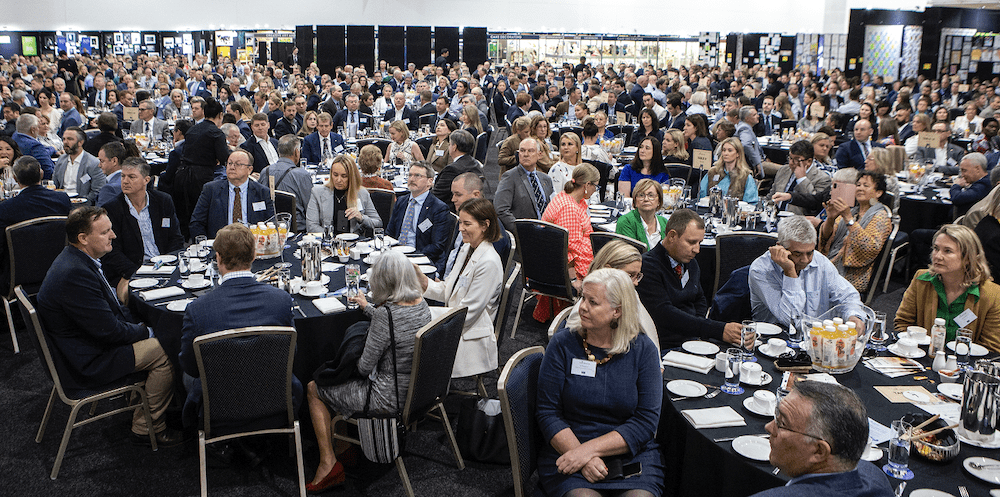
780 people attended the 2023 Rural Press Club of Queensland Ekka Breakfast Malcolm McCosker Memorial Address.

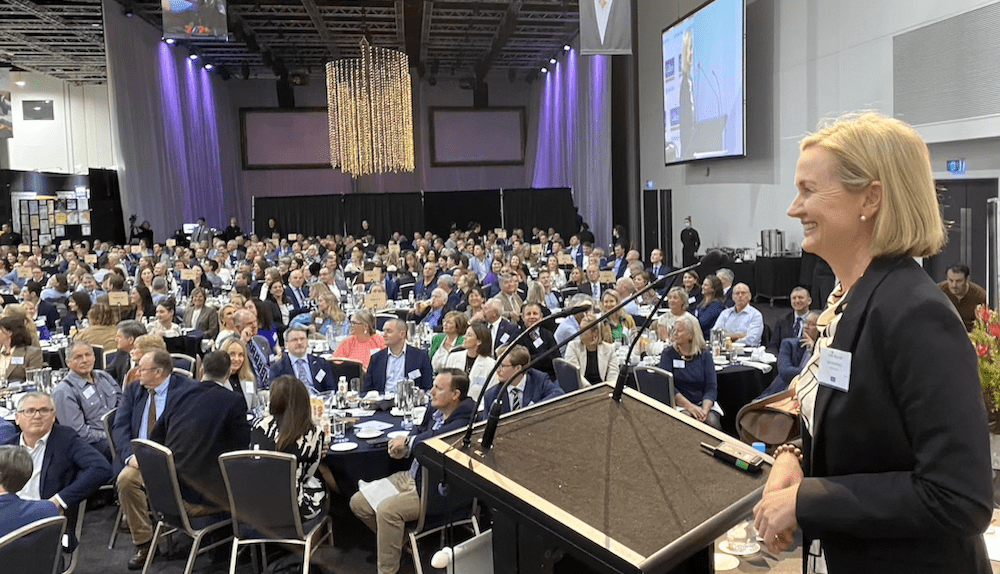
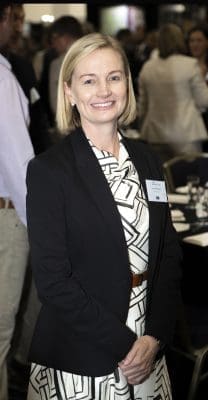
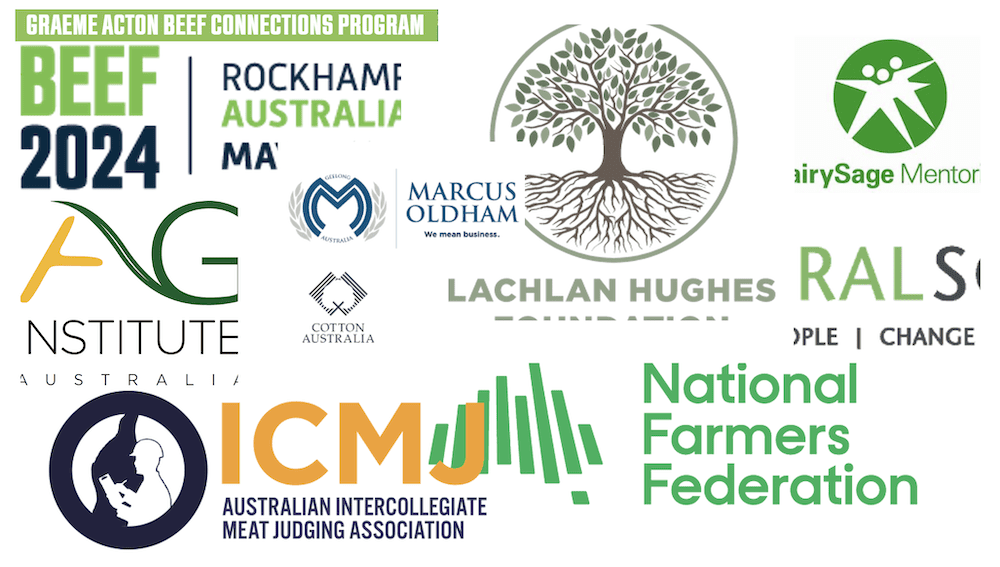
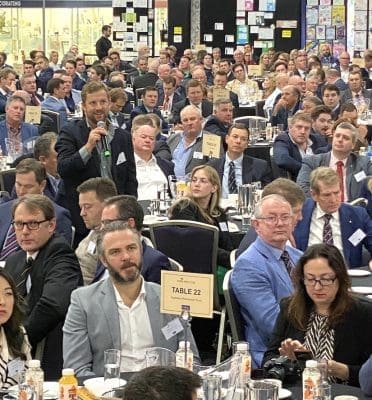
Julie’s address was clear and concise, and she has a natural way of leading by example.
Well done Julie McDonald some very interesting reflections and valuable advice, thank you.